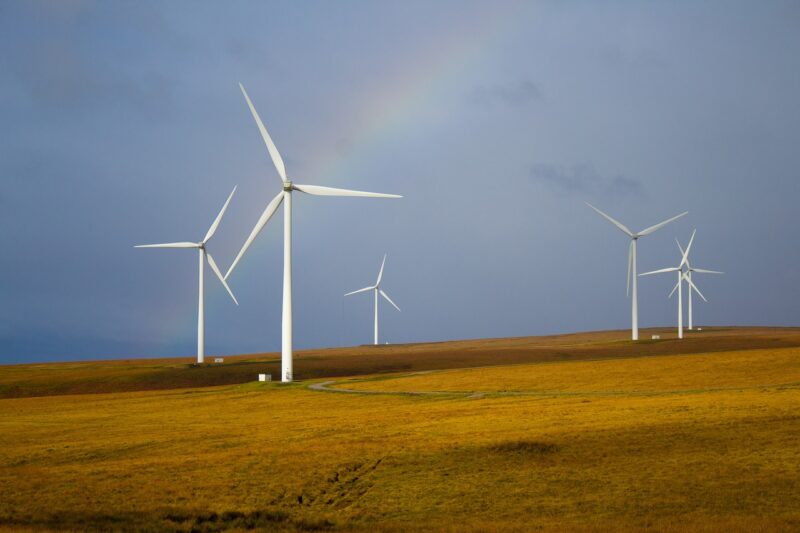Sustainability in Everyday Life: Easy Ways to Make a Difference
November 18, 2024

In recent years, the conversation around sustainability has transcended from niche discussions to mainstream urgency. With climate change looming large and environmental issues coming to the forefront, it’s never been more important to consider how our daily actions contribute to the collective impact on our planet. But while it may seem overwhelming to tackle such a massive challenge, there are countless easy ways to make a difference right in your own daily life.
1. Understanding Sustainability
Sustainability is the practice of maintaining processes or systems in a way that does not deplete resources or cause severe ecological damage, ensuring that future generations can also meet their needs. It encompasses three pillars: environmental preservation, economic viability, and social equity—often referred to as the “triple bottom line”. Each aspect is crucial for creating a holistic approach to living sustainably, but this article will primarily focus on actionable steps that emphasize environmental preservation.
2. Reduce, Reuse, Recycle
The mantra of “reduce, reuse, recycle” is essential for anyone looking to adopt a sustainable lifestyle:
- Reduce: The most effective way to minimize waste is to reduce consumption. Consider buying only what you truly need, choosing high-quality durable goods over disposable ones, and opting for digital formats when possible to eliminate paper waste.
- Reuse: Before discarding items, think about how they can be reused. Glass jars can serve as storage containers, and old clothes can be repurposed into cleaning rags or crafts.
- Recycle: Ensure that items you no longer need go into the correct recycling bins. Familiarize yourself with your local recycling guidelines, as they can vary widely by location.
By following these principles, individuals can make a significant dent in the waste produced daily.
3. Mind Your Water Usage
Water is a precious resource, and reducing usage can have a considerable impact:
- Shorten Showers: Aim to keep showers under five minutes. This small change can save gallons of water each day.
- Install Low-Flow Fixtures: Consider replacing standard faucets and showerheads with water-saving variants. They can reduce water usage without sacrificing pressure.
- Fix Leaks: A dripping faucet may seem minor, but it can waste gallons over time. Regularly check for leaks and repair them promptly.
Small adjustments in water usage can cumulatively lead to significant savings and conservation.
4. Choose Sustainable Transportation
Transportation is one of the largest contributors to carbon emissions. Here’s how you can make sustainable choices:
- Walk or Bike: For short distances, consider walking or biking instead of driving. It’s healthier for you and the planet.
- Public Transport: Utilize buses, trains, or subways. Significant reductions in carbon footprints can result from shared transportation methods.
- Carpooling: Coordinate with co-workers or friends to share rides, which reduces the number of vehicles on the road and conserves energy.
By making conscious transportation choices, you can significantly cut down on greenhouse gas emissions.
5. Embrace Sustainable Eating Habits
Our food choices directly affect the environment:
- Eat Local and Seasonal: Supporting local farmers’ markets not only provides you with fresh food but also reduces transportation emissions associated with long-distance shipping.
- Reduce Meat Consumption: The meat industry is resource-intensive and a significant source of greenhouse gases. Consider going meatless for a few days a week or trying plant-based alternatives.
- Minimize Food Waste: Be mindful of food portions and store food correctly to extend its shelf life. Composting is also an excellent way to divert food scraps from landfills.
Adjusting your eating habits can lead to a healthier planet and body.
6. Reduce Energy Consumption
Energy conservation not only saves you money but also has profound environmental benefits:
- Switch to LED Bulbs: LED bulbs consume less energy and have a longer lifespan compared to traditional incandescent bulbs.
- Unplug Electronics: Devices still consume energy when plugged in. Unplug chargers and electronics when they’re not in use.
- Use Smart Power Strips: Smart power strips can automatically cut off power when devices are not in use, preventing energy waste.
Conserving energy means less fossil fuel consumption and reduced greenhouse gas emissions.
7. Educate and Inspire Others
One of the most effective ways to spread the message of sustainability is through education and inspiration:
- Share Knowledge: Discuss sustainability practices with friends, family, and colleagues. Share articles, documentaries, or resources that inform and inspire positive change.
- Lead by Example: Your actions can inspire those around you. When they see you making an effort, they may be encouraged to follow suit.
- Get Involved: Participate in local environmental initiatives, community clean-ups, or sustainability workshops. Joining together with like-minded individuals amplifies your impact.
As you adopt sustainable practices, share your journey to foster a community of awareness and action.
Conclusion
Embracing sustainability in everyday life does not require monumental changes; rather, it’s about making small adaptations that cumulatively make a significant impact. Whether it’s reducing waste, conserving water, altering transportation habits, or educating others, each action counts. As we move forward, let’s recognize that individual efforts contribute to a collective goal of leaving a habitable planet for future generations. Make a commitment today—because every sustainable choice today leads to a brighter tomorrow.






